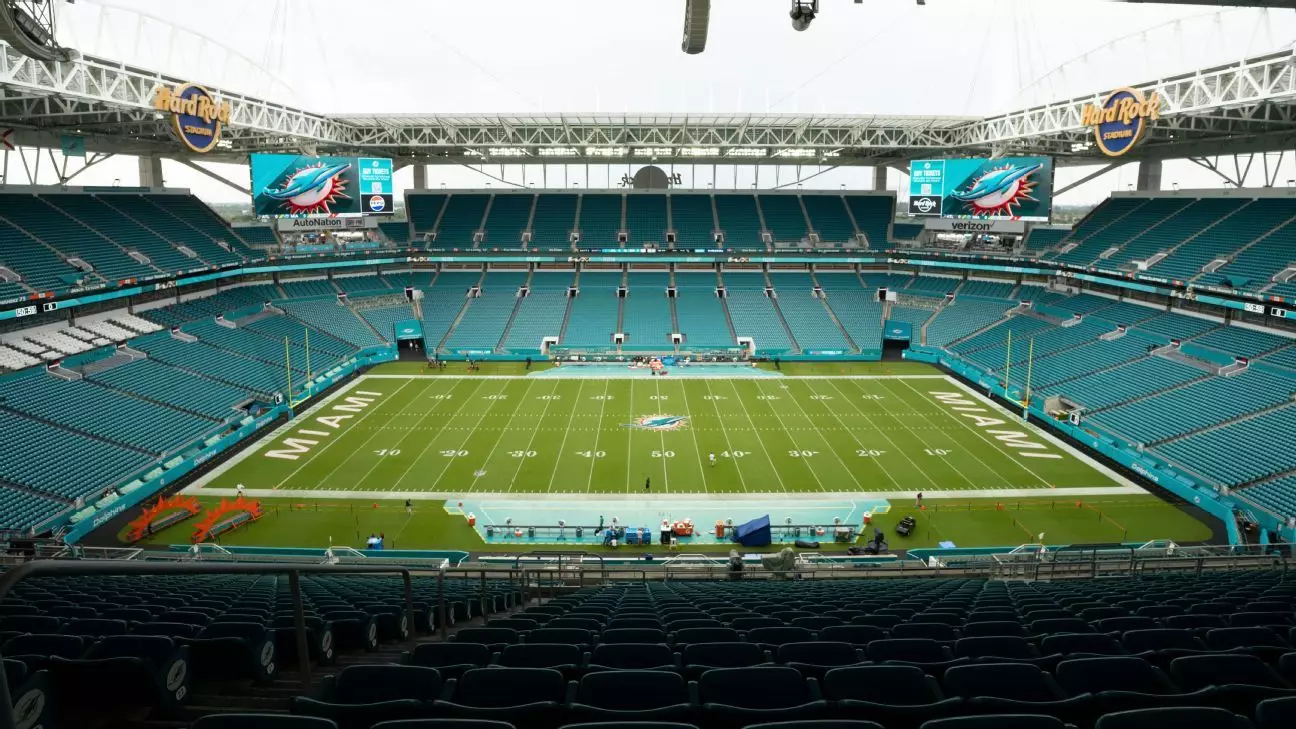In the evolving landscape of global football, LaLiga’s president, Javier Tebas, has articulated an ambitious vision aimed at extending the Spanish league’s reach into the vibrant sports market of the United States. The plan to host a competitive LaLiga match, potentially featuring teams like Barcelona and Girona, in Miami within the next season represents a bold initiative that reflects a growing trend in sports globalization. Tebas’s aspirations are not without challenges, particularly with the intricate bureaucracy of football governance looming overhead.
Tebas’s ambition to host a LaLiga match in Miami is not new; it first emerged during 2018 when plans were announced for a match to take place at the Hard Rock Stadium. However, the initiative faced substantial pushback from key stakeholders, notably the Spanish Football Federation (RFEF) and FIFA. Their contention stemmed from a combination of regulatory adherence and concerns about diluting the sanctity of domestic leagues by introducing games abroad. This initial resistance exemplified the cautious nature of football governance, eager to maintain the traditional structure of the sport while grappling with commercial opportunities abroad.
The situation intensified when Relevent Sports Group, a firm led by Miami Dolphins owner Stephen Ross, took legal action against FIFA, challenging the organization’s ostensibly protectionist policies that restricted league match locations. In 2019, it became clear that the road to hosting LaLiga games in the U.S. was fraught with obstacles. Yet, the recent agreement reached between Relevent and FIFA indicates a potential softening of attitudes that could pave the way for a LaLiga game on American soil.
The viability of hosting a competitive match in Miami now hinges upon the formal agreement between LaLiga and the RFEF. As Tebas pointed out, the current leadership void within the RFEF—driven by the absence of an elected president—has created a significant delay in progressing these plans. Nevertheless, he remains optimistic, indicating a potential resumption of talks that could lead to the highly anticipated match next season.
Complicating matters, however, are the mounting tensions within the football community regarding player welfare and fixture congestion. Rodri, a key player for Manchester City, has indicated that players are nearing a breaking point, with a strike becoming a viable option if their concerns are not addressed. The impending Club World Cup, expanding to 32 teams and set to occur in the U.S., adds to the complexity of the fixtures and raises further questions about player fatigue and the integrity of domestic competitions.
Tebas’s dual focus on promoting LaLiga internationally while expressing reservations regarding the intense fixture calendar highlights a critical narrative in modern football—balancing commercial ambitions with player well-being. His insistence that support for a LaLiga game in the U.S. does not undermine his concerns about the Club World Cup speaks volumes about the delicate dance administrators must perform. Each venture into new markets must be carefully weighed against the foundational principle of maintaining the integrity of the league and safeguarding player health.
As the dialogue continues, the outcome remains uncertain. The juxtaposition of global expansion and the operational realities of player welfare presents a challenge that must be navigated with caution. Indeed, the future may hold a scenario where LaLiga games in the U.S. could not only enhance the league’s brand but also provide additional revenue streams essential for its sustainability amid increasing competition.
LaLiga stands at a pivotal moment, where its leadership must weigh the potential benefits of international expansion against the foundational principles of player welfare and sports integrity. Javier Tebas’s ambition to introduce competitive league matches in Miami is indicative of a broader trend of globalization in football, yet he must navigate the intricate web of regulations, stakeholder opposition, and player concerns.
The road ahead is fraught with challenges, but with continued dialogue and adaptation, LaLiga could very well emerge as a trailblazer, redefining how domestic leagues engage with international markets while remaining sensitive to the needs of the athletes who play within them. Ultimately, how LaLiga manages this balance will shape its narrative in the years to come.


Napsat komentář